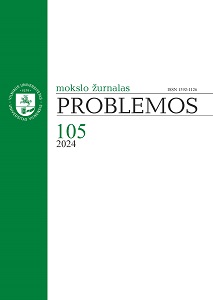Kultūros krizė ir fenomenologinė sedimentacijos samprata E. Husserlio filosofijoje
Cultural Crisis and the Phenomenological Concept of Sedimentation in E. Husserl’s Philosophy
Author(s): Dalius JonkusSubject(s): Philosophy, Culture and social structure , Sociology of Culture, Phenomenology
Published by: Vilniaus Universiteto Leidykla
Keywords: philosophy of culture; phenomenology; Husserl; sedimentation; cultural crisis;
Summary/Abstract: Husserl names the dynamics of cultural objectifications with the term sedimentation, which includes the formulation of the discovered meaning in material sensory expressions and the reactivation of these passively existing meanings. This paper analyzes this concept of sedimentation and places it in the context of Husserl’s thoughts on the crisis of culture. Unlike the usual interpretations of Husserl’s philosophy of culture which state that the crisis of sciences arises from the inadequacy of their ‘scientificity’ and inability to solve the problems of the meaning of life, I argue that the crisis can be understood as the result of the duality of sedimentation. Sedimentations not only preserve knowledge, but also create the illusion that knowledge reproduces itself. When reflecting on the crisis of culture, Husserl turns from theoretical philosophy to practical philosophy.
Journal: Problemos
- Issue Year: 2024
- Issue No: 105
- Page Range: 74-87
- Page Count: 14
- Language: Lithuanian

